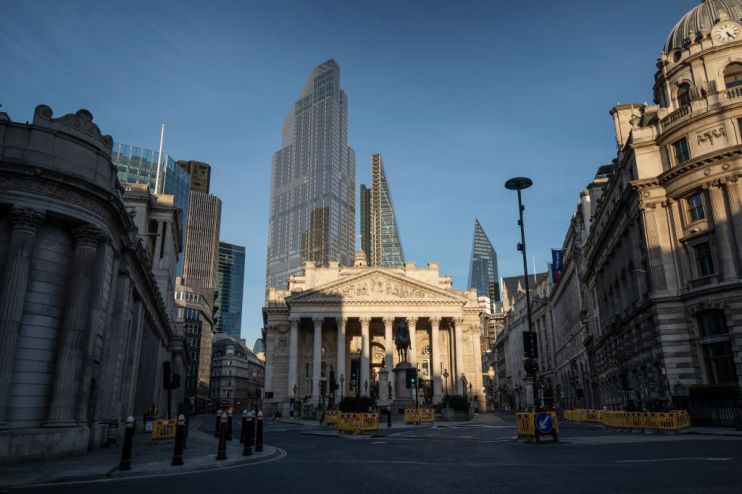FTSE 100 slips as investors weigh up US-China tensions

The FTSE 100 is down after a strong rally as investors take stock of high levels of economic uncertainty and rising US-China tensions.
The UK’s blue-chip stock index was down 0.41 per cent at 6,355 points in afternoon trading. It marked a change from the first three days of the week, when it rose to near three-month highs.
European stocks were down despite the European Central Bank’s expansion of its coronavirus stimulus package. The continent-wide Stoxx 600 was down 0.49 per cent at 367 points. Germany’s Dax was 0.85 per cent lower in early trading before gaining marginally to trade down 0.3 per cent. The French benchmark Cac 40 dipped nearly one per cent before finishing the day up 0.05 per cent.
Investor sentiment cooled in part due to US-China tensions. They have been running high throughout the coronavirus crisis but spiked last month when Beijing announced a new security law for Hong Kong.
Yesterday, President Donald Trump suspended Chinese airline passenger flights to the US. British Prime Minister Boris Johnson said China’s actions in Hong Kong risked “badly eroding” political freedoms enshrined in the Sino-British agreement.
Yet British-Hong Kong banks HSBC and Standard Chartered both welcomed the new security law. Their shares rose on the Hong Kong bourse overnight. HSBC’s London-listed shares were down 0.27 per cent by the afternoon and Standard Chartered edged up 1.22 per cent.
Asian stocks were mixed. Hong Kong’s Hang Seng was up 0.17 per cent while China’s CSI 300 dipped marginally. Japan’s Nikkei rose 0.4 per cent.
The European Central Bank today increased its €750bn (£670bn) bond purchases. The Pandemic Emergency Purchase Programme (PEPP) envelope is being widened by around €600bn to €1.35bn, and the scheme will last at least until June 2021. The central bank said it will reinvest proceeds at least until the end of 2022.
Barrett Kupelian, senior economist at PwC, said: “The baton is now in the hands of the European Union leaders who are tasked with ironing out the details of the EU’s budget (Multiannual Financial Framework) – a significant component of which includes half a trillion Euros of grants to the EU states most negatively affected by the virus. This, coupled with Germany’s newly announced large fiscal stimulus, could help set in motion the recovery.”
FTSE 100 reshuffle ousts major firms
It came after the FTSE’s quarterly reshuffle was confirmed last night, with four major firms ousted from the blue-chip index.
Carnival, Centrica, Easyjet and Meggitt dropped down into the FTSE 250 index.
They were replaced by Avast, GVC Holdings, Homeserve and Kingfisher.
Emily Waterworth, investment manager at Brewin Dolphin, said the FTSE 100 reshuffle was “a stark representation of the global impact of the coronavirus”.
“It isn’t a surprise that the travel, tourism and leisure sectors have been hard with travel and lockdown restrictions still firmly in place,” she said.
“The energy sector was also hit hard with unprecedented lows in the oil price reflecting the lack of demand for this commodity as the world essentially shut down.”
Oil prices also dipped as investor optimism cooled. Brent crude was down 1.5 per cent to $39.20 per barrel. WTI crude, the US benchmark, two per cent lower at $36.50 per barrel.
US stocks turn higher as jobless claims slow
US stocks were slightly higher after a report on weekly jobless claims suggested unemployment may be peaking.
The Dow Jones was up 0.38 per cent at 26,368, while the S&P 500 edged up marginally to 3,124 points. The Nasdaq Composite Index rallied to a new intraday record high, near 9,704.
Another 1.9m US workers applied for first-time unemployment benefits, and while grim reading it does suggest the US economy may have been seen the worst of the impact of coronavirus.
The S&P has gained back 77 per cent of all its losses from the February high after crashing in March as the impact of coronavirus hit the US.
The focus will now shift to the employment report for May, due tomorrow, which is expected to show the unemployment rate rocketing to 19.8 per cent, a post-World War Two record.
Get the news as it happens by following City A.M. on Twitter.